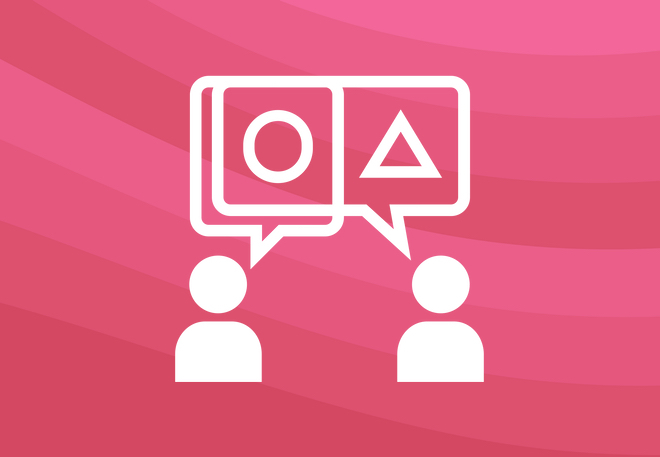
Pedagogical Content Knowledge (PCK) represents a fundamental idea in education that underscores the importance of teachers having an integrated understanding of the material they are teaching and the most effective ways to teach that material to their students. Lee Shulman's introduction of PCK challenged the then-prevailing notion that content expertise alone was sufficient for effective teaching. Instead, Shulman argued that teachers must also understand how to present content in ways that are accessible, understandable, and engaging to learners.
PCK encompasses several key components:
-
Knowledge of Students' Understandings and Misconceptions: Teachers need to know common learning pathways and misconceptions in their subject area to anticipate and address learning challenges. E.g. The misconception that continents float on water.
-
Curriculum Knowledge: This involves understanding what should be taught within a curriculum, including the knowledge of educational standards and how to sequence content towards them.
-
Instructional Strategies: Effective teaching requires strategies tailored to the subject content and the learners' needs, such as direct instruction, active practice or analogies and representations.
-
Assessment: Teachers must know how to assess students’ learning in ways that establish their understanding of the content and their ability to apply it in various contexts.
-
Reflective Practice: Part of PCK is the ability to reflect on teaching experiences, evaluate the effectiveness of instruction, and make adjustments based on evidence from the classroom.
Why is PCK Important?
-
Enhanced Learning Outcomes: Numerous studies have shown that teachers with strong PCK are more effective in delivering content in a way that makes it accessible and understandable to their students, ultimately leading to better learning outcomes (Magnusson, Krajcik, & Borko, 1999).
-
Curriculum Alignment: A strong grasp of PCK ensures that there is a congruence between what is outlined in curricular guidelines and what is enacted in the classroom (Ball, Thames, & Phelps, 2008).
-
Inclusive Teaching: Teachers with a good understanding of PCK are more adept at differentiating their teaching to cater to the diverse needs of their student population (van Driel, Verloop, & de Vos, 1998).
-
Professional Development: PCK serves as a focal point for teacher development, offering a structured way to reflect on teaching practices and improve them (Shulman, 1987).
Research Supporting PCK
Since Shulman's seminal work, numerous studies have explored the dimensions of PCK across various disciplines and educational levels. These research endeavours have often highlighted the positive correlation between effective PCK and improved student learning outcomes.
-
Discipline-Specific Studies: Research in domains like science (Magnusson, Krajcik, & Borko, 1999) and mathematics (Hill, Ball, & Schilling, 2008) has shown the critical role PCK plays in effective teaching within those subjects.
-
Longitudinal Analyses: Long-term studies tracking teachers' development of PCK have provided valuable insights into how it evolves over time and the impact it has on student achievement (Loughran, Mulhall, & Berry, 2008).
-
International Scope: PCK has been evaluated in various international contexts, further validating its universal applicability and importance (Park & Oliver, 2008).
-
Technological Advances: Recent research has extended the concept to include Technological Pedagogical Content Knowledge (TPACK), exploring how technology can be effectively integrated into teaching (Mishra & Koehler, 2006).
Examples
English
Content Knowledge: Understanding the rules of grammar and sentence structure.
PCK: Knowing that young children often struggle with the difference between adjectives and adverbs, the teacher designs activities that make this distinction clear, such as using colour-coded cards or interactive online games.
Mathematics:
Content Knowledge: Knowing how to perform basic arithmetic operations.
PCK: Understanding that children may struggle with abstract numerical concepts, the teacher uses concrete materials like counting blocks or visual aids to teach addition or subtraction.
Science
Content Knowledge: Understanding the water cycle.
PCK: The teacher knows that the concept of evaporation can be abstract for young children. Therefore, they may use a real-world experiment, like leaving a shallow dish of water in the sun, to make the concept more tangible.
History
Content Knowledge: Knowledge about historical events such as the Great Fire of London.
PCK: Anticipating that children might find it hard to grasp the scale and impact of the event, the teacher might simulate a small-scale 'fire,' safely controlled, to demonstrate how quickly it can spread. This experiential learning can make the historical event more relatable.
Physical Education
Content Knowledge: Knowing the rules of a sport like football.
PCK: Understanding that some children may feel self-conscious about their physical abilities, the teacher designs activities that allow everyone to participate and succeed at some level.
Art and Design
Content Knowledge: Understanding principles like colour theory or perspective.
PCK: Knowing that children will have varying levels of fine motor skills, the teacher might offer various tools and mediums to experiment with, from chunky crayons to watercolours.
References
- Shulman, L. S. (1986). Those Who Understand: Knowledge Growth in Teaching. Educational Researcher, 15(2), 4-14.
- Magnusson, S., Krajcik, J., & Borko, H. (1999). Nature, sources, and development of pedagogical content knowledge. In Examining pedagogical content knowledge (pp. 95-132). Springer.
- Ball, D. L., Thames, M. H., & Phelps, G. (2008). Content knowledge for teaching: What makes it special? Journal of Teacher Education, 59(5), 389-407.
- van Driel, J. H., Verloop, N., & de Vos, W. (1998). Developing science teachers' pedagogical content knowledge. Journal of Research in Science Teaching: The Official Journal of the National Association for Research in Science Teaching, 35(6), 673-695.
- Hill, H. C., Ball, D. L., & Schilling, S. G. (2008). Unpacking pedagogical content knowledge: Conceptualising and measuring teachers’ topic-specific knowledge of students. Journal for Research in Mathematics Education, 39(4), 372-400.
- Loughran, J., Mulhall, P., & Berry, A. (2008). Exploring pedagogical content knowledge in science teacher education. International Journal of Science Education, 30(10), 1301-1320.
- Park, S., & Oliver, J. S. (2008). Revisiting the conceptualisation of pedagogical content knowledge (PCK): PCK as a conceptual tool to understand teachers as professionals. Research in Science Education, 38(3), 261-284.
- Mishra, P., & Koehler, M. J. (2006). Technological pedagogical content knowledge: A framework for teacher knowledge. The Teachers College Record, 108(6), 1017-1054.
Related articles


.png)

